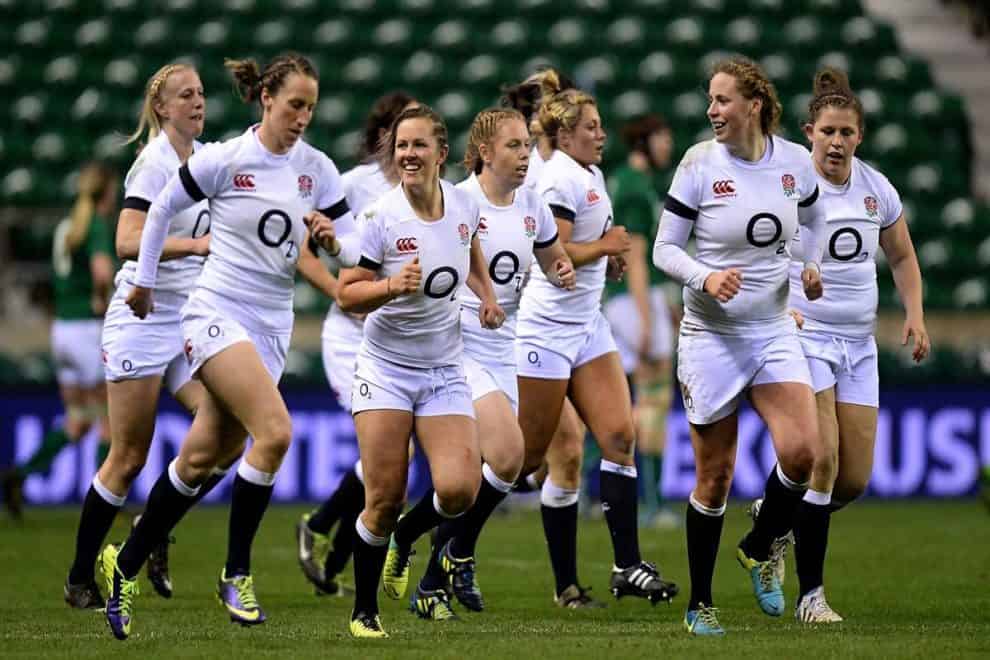
- The UK National Lottery is taking on a sponsorship role with the Rugby Football League and the Women’s and Girls’ Rugby League.
- Betfred is the naming sponsor of the Women’s Super League which will return to action in April after being idle for 18 months due to the COVID-19 pandemic.
- As is the case in North America, the UK treatment of the lottery relative to sports betting is downright hypocritical.
The UK National Lottery has announced that they’ll become an ‘official partner’ of the Rugby Football League and of Women’s and Girls’ Rugby League. According to the lottery, they stepped forward with this magnanimous gesture to help the sport through the negative impact of the COVID-19 pandemic. Indeed, the majority of women rugby players in England have not played since late 2019. This is true not only for the top levels of the sport but for all formats of the women’s and girls’ league. There has been great concern that the pandemic will slow the momentum of the distaff version of the sport–the size of the playing community has grown by 53% since the RFL launched the Women’s Super League in 2017.
The deal itself is fairly typical–according to a press release issued by the Rugby Football League which is the governing and promotional body for rugby in the UK.
The partnership will see the support of The National Lottery acknowledged through a range of branding across the sport’s premier men’s and women’s fixtures. In addition, The National Lottery will be the title partner for the England Women Rugby League Mid-Season International versus Wales on Friday 25th June, Halliwell Jones Stadium, Warrington, KO 6pm.
In addition, there will be a range of opportunities for National Lottery players to get tickets to major fixtures and to the Mid-Season International, including sought after VIP tickets.
The lottery pats itself on the back for all of the charitable work undertaken during the COVID-19 pandemic:
The National Lottery has played a crucial role in supporting sport across the country during the pandemic. This has included commercial partnerships with a variety of sports, including Wheelchair Tennis, Rugby Union Sevens and non-league football across the four nations. Alongside this, over £150M of National Lottery funding has now been distributed to grassroots sports organisations across the UK.
Absent from the press release is the mention of the naming sponsor of three of the top rugby leagues in the UK:


AN INFURIATING DOUBLE STANDARD
I have no problem with the National Lottery supporting rugby or any other sport. What I find infuriating is the double standard in how the lottery is treated by regulators and the media relative to sports betting. This is prevalent in North America and at least judging from the UK the same thing can be found in Europe. The National Lottery involvement comes at a time when football sponsorships by betting companies are being threatened by the usual assortment of hand wringing scolds. This doesn’t apply to the lottery apparently no doubt for the same reason found in the US–as inexplicable as it sounds it’s treated differently when the government is rigging the game.
But if the UK government wants to ‘crack down’ on sports betting and other forms of wagering because ‘gambling is bad’ why does the lottery get a pass? If you accept that logic it would follow that a form of gambling with a 50% or more house edge would be significantly worse than one with a theoretical single digit edge. That’s apparently not the case for some inexplicable reason. That’s the only way to explain the fact that while the legal minimum age for gambling in the UK is 18 years old you can buy lottery tickets at age 16. At least this blatant hypocrisy is being rectified since starting on April 22, 2021 the minimum age for lottery games is being raised to 18.
More hypocrisy–the marketing for the National Lottery is borderline irresponsible. It repeatedly pitches the lottery as a way ‘to make dreams come true’. Even more vulgar is the ‘winners and good causes’ section of the site where the lottery’s charitable efforts are conflated with players pulling down big wins in times of extreme financial need. The story of Lesley is typical–she pulled down a £2,000,000 win just in time to pay for her African Grey rescue parrot’s dislocated foot. Lesley seems like a very nice person who is going to use her money to rescue more dogs–along with some chickens. Even so, her suggestion that she decided to buy the winning ticket because she got a message from her late grandfather that passed away in December is creepy.

The sublimation of the ‘charity’ angle with the ‘lottery is a way to change your life’ narrative is no accident. Check out this blurb at the bottom of the the page where Lesley is featured:
The National Lottery has been changing the lives of winners and supporting good causes across the UK since 1994. In that time, there have been more than 5,900 new millionaires created and by playing The National Lottery you raise £30M for good causes every week.
To be fair, most US lotteries use a similar promotional strategy–emphasizing all of the good work done with lottery proceeds and featuring the lucky winners. In South Carolina, they take ‘cynical’ to a new level by including the good works in the name of the lottery commission: the South Carolina Education Lottery. Both the US and UK lotteries give lip service to problem gambling while sports betting with its single digit hold percentages are held to a much higher standard.
This is just my anecdotal observation but it appears as the lotteries in the US no longer (or are no longer required) to put disclaimers front and center any more. It always amused me when I was living in Portland a decade or so ago that Oregon Lottery commercials and billboards would all have the warning that the games should ‘not be played for investment purposes’. When I was writing this article I checked a dozen or so US state lotteries at random and couldn’t find any main page disclaimers of this sort. All of the ‘responsible gambling’ content was hidden ‘under the fold’. At least Indiana’s Hoosier Lottery provided an online Financial Literacy Course in conjunction with a local community college. A course in basic math might be more appropriate and helpful but obviously they’re nowhere to be found. The problem here is twofold: it takes a leap of self awareness for someone to accept that they might have a gambling problem but the reality that from a statistical standpoint playing the lottery isn’t much different than throwing your money in the street. These messages need to be put in front of all players, not just those that self identify as having a ‘problem’.
ABSURDLY LONG ODDS + LESS EDUCATED AND AFFLUENT PLAYERS
Back to the UK for a moment–I was going to try and work out the National Lottery’s overall hold percentage but ran into a problem: it was damn near impossible to find any information on the odds of winning the individual game. If the Euromillions UK prize structure is indicative of the rest of the lottery games their hold percentage is even uglier than US lotteries. If you dig deep in the information about the game you learn that for every £2.50 wagered 76p is returned to the players. Since there are 100p in a pound that means that just 30.4% of all wagers are returned as prices for a hold percentage of 69.6%! The odds of winning a top prize are astronomical:
- Lotto jackpot: 1 in 45,057,474
- EuroMillions jackpot: 1 in 139,838,160
- Set For Life top prize: 1 in 15,339,390
- Thunderball top prize: 1 in 8,060,598
These are somewhat better than the odds of winning the US networked lottery games Powerball (1 in 292.2 million) and Mega Millions (1 in 302.6 million) but at some point this difference is of little relevance. The odds for the UK lottery ‘Thunderball’ game look downright generous compared to most lottery games. A few comparisons quickly dispel that notion:
- Odds of being struck by lightning: 1 in 10 million
- Dating a supermodel: 1 in 88,000
- Being killed in a shark attack: 1 in 3.7 million
- Being killed by a meteorite striking earth: 1 in 1.9 million
Finally, let’s look at the demographics of UK lottery players which are similar to those of US players. They are typically older (44% are between 65 and 74 years old), non-white (53% identify as one or more ethnicity) and 35% are unemployed. 24% said they play lottery games because ‘they don’t require special skills’ while 67% are actually trying to win the top prize. Income level and education level are also predictive of lottery play–and not in a good way. The less affluent and less educated a person is the more likely they are to be regular lottery players. This is no different than in the US where the lowest fifth of socioeconomic status have the highest rate of lottery play. The demographics of sports betting are almost diametrically opposite trending toward younger, better educated and more affluent.
All of this notwithstanding, I have no problem with people playing the lottery. All I want is a little proportionality. The hand wringing over sports betting–an activity with a serious intellectual component, a single digit theoretical hold and a demographic of well educated and affluent players–compared to the lottery defies logical explanation.









